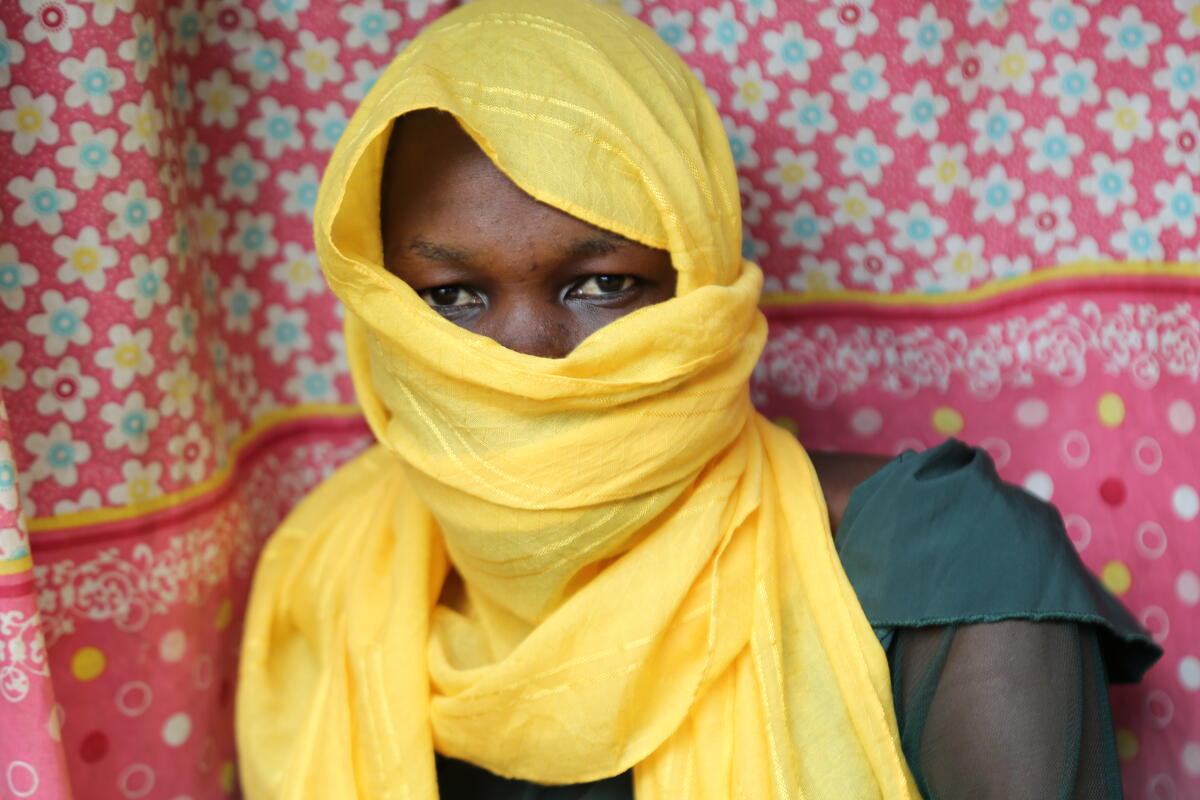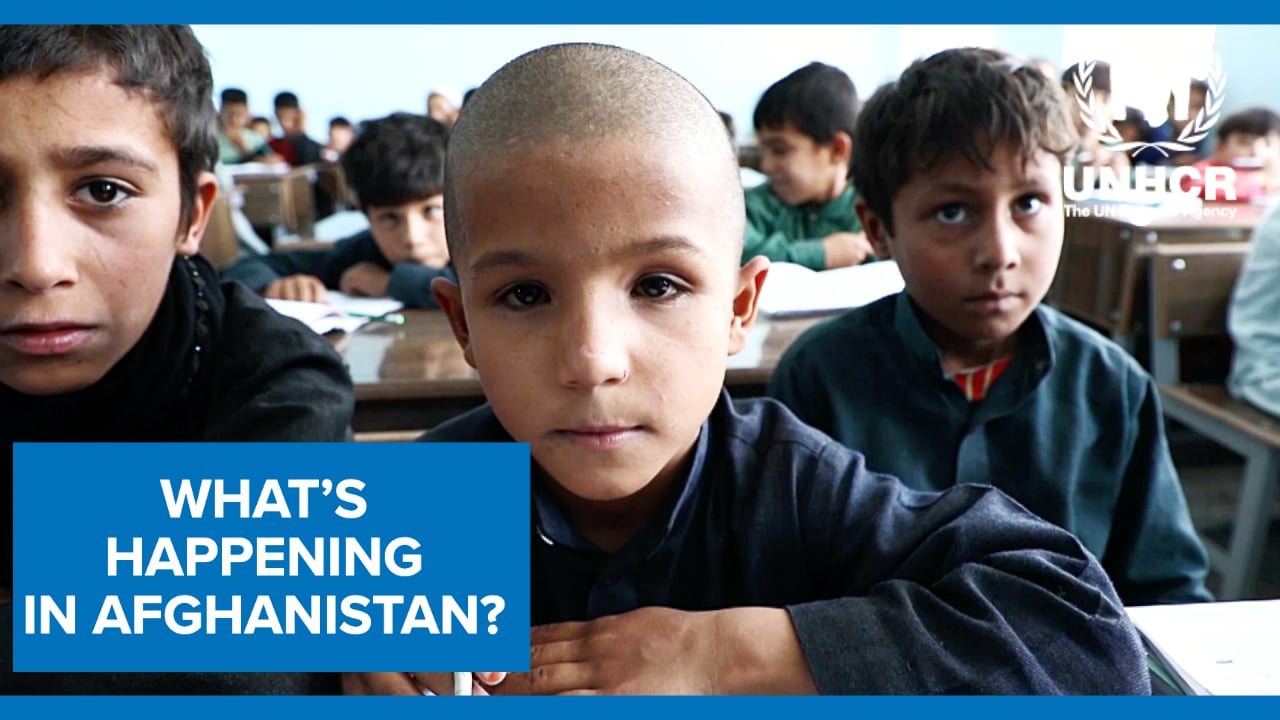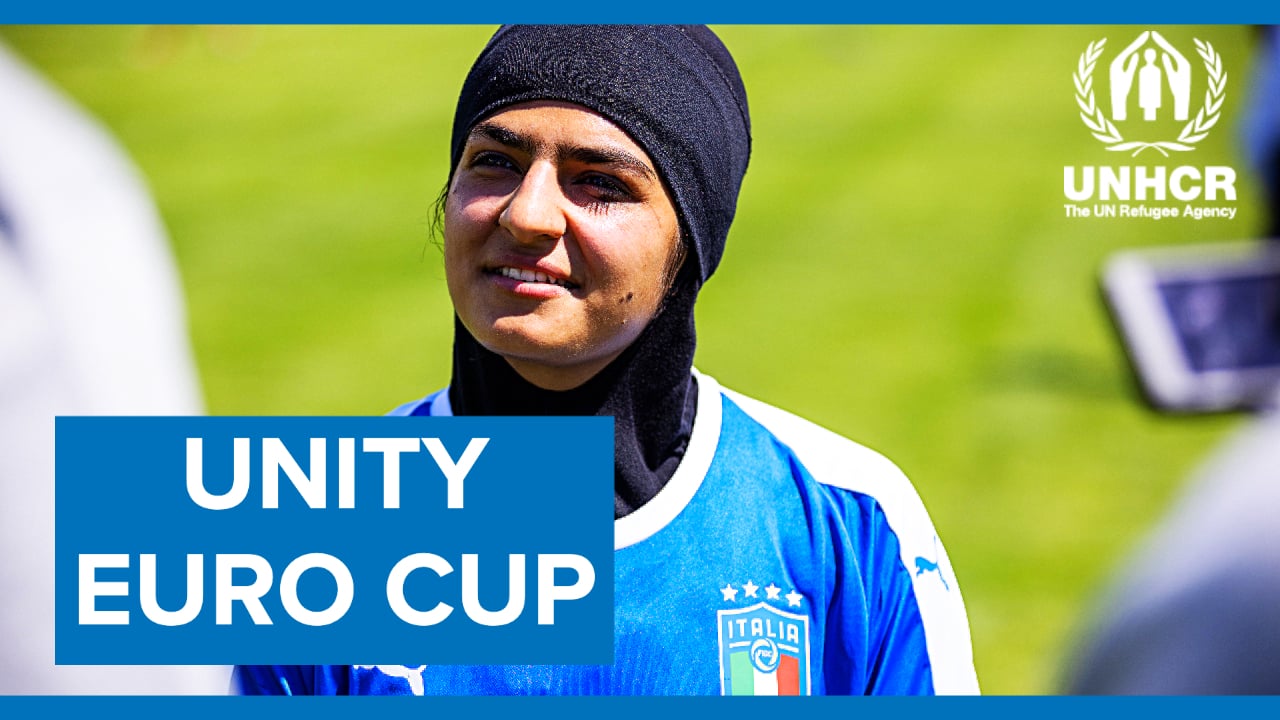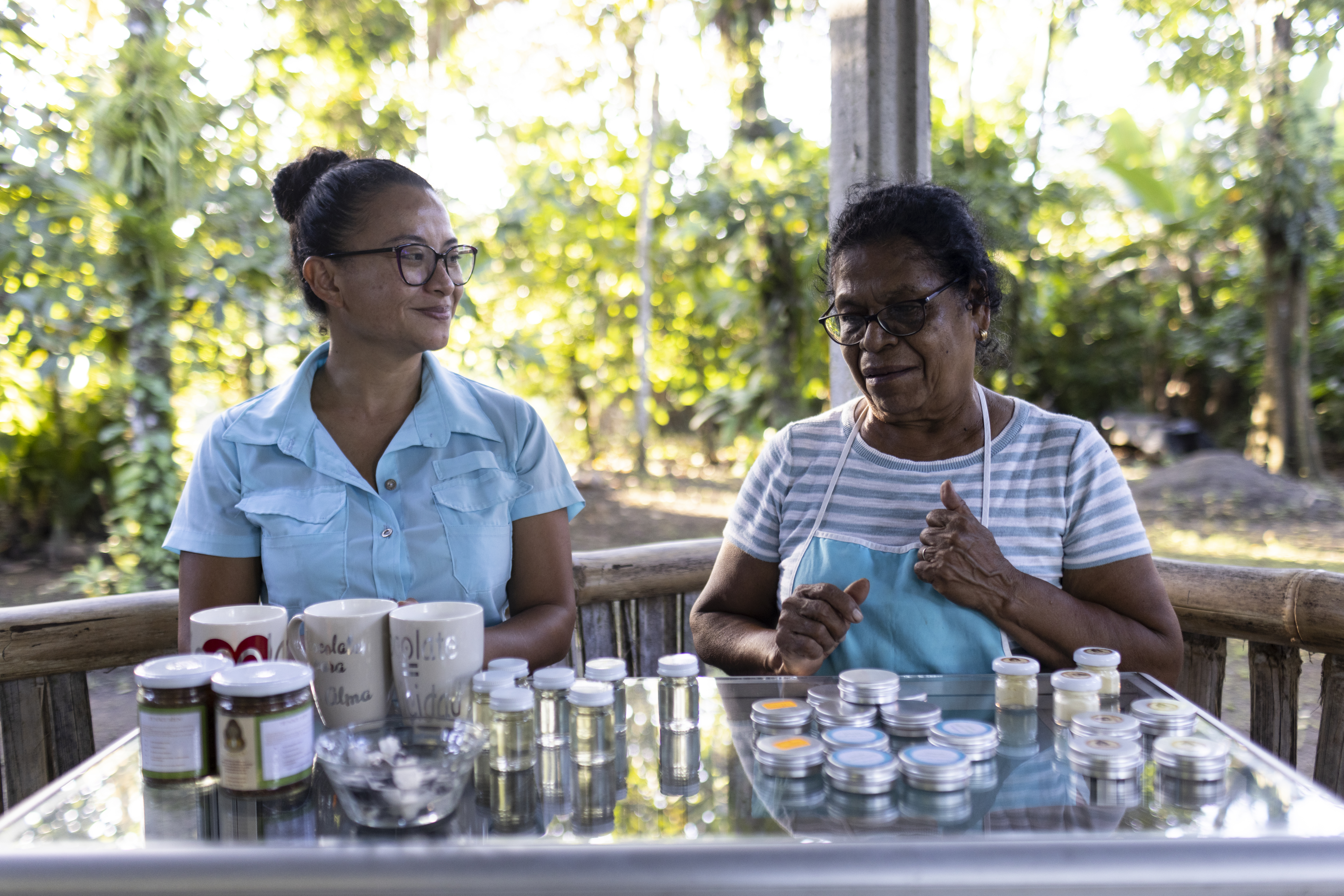International Women's Day: Rallying for women's rights in Botswana
International Women's Day: Rallying for women's rights in Botswana

DUKWI CAMP, Botswana, March 11 (UNHCR) - Namibian refugee Sanette Reuben is a woman on a mission. Eight months pregnant and fighting a bout of malaria, the Chairperson of the Peace Messengers is hard at work ensuring that the preparations to commemorate International Women's Day on March 8 at Dukwi refugee camp fall into place.
The proceedings are to begin with a placard-carrying procession from the camp's main entrance, half a kilometre away from the community hall, where the occasion will be commemorated through a programme of music, drama, cultural dance and most importantly, messages from guest speakers on the concerns faced by women in Botswana and in the camp.
The Peace Messengers are a group of refugee women representing the 14 nationalities currently living in Dukwi. According to UNHCR Community Services Officer Lisa Palmer, the women were a loose network of people who helped plan World Refugee Day in 2004. They realised after the event that together, they could pursue other matters in the camp affecting women and children in particular. Barely a year old, the Peace Messengers are a close-knit, vocal, visible and vigilant group that has won the grudging respect of some of the camp's men.
"They are more than just a channel through which information on sexual and gender-based violence is communicated," says Palmer. "They are mothers whose concern is for each other and the well being of the generation of children they are raising."
Taking this message to the greater camp population, the chanting and ululating women make their way to the community hall. Store owners and their customers lining the half-kilometre stretch from the gate to the camp's centre, stare at the procession led by a very pregnant Reuben and a dancing Palmer. Reaction to this unusual sight varies. Many of the male traders stare in stony silence while their female customers make a quick dash into the crowd, ululating and dancing their support before returning to conclude their business with the store owners. School girls have been released from their classes today for an education of a different kind - an education that should teach them about their importance in society and in a refugee camp.
The women of the camp have reason to acknowledge and celebrate this occasion.
"Since we got together formally last year," says Reuben, "we became even more concerned about the way women and girls were being treated in the camp, the way our young girls were dropping out of school and the general sense of helplessness that pervaded the atmosphere here."
"Sanette is right," agrees Palmer. "I recall that in one of our management meetings, the school was asked to bring the statistics of the children enrolled, and what we learnt was very alarming. The secondary school had a 46 percent dropout rate. In the primary school, girls between the ages of 10 and 14 were dropping out. On our follow-up through the Peace Messengers, we learnt that some had married and others had fallen pregnant, not by their peers but grown men who should know better. How on earth does a man marry a 10-year-old?"
The sense of outrage is pervasive in the camp today. It is however tempered by a growing realisation that even as refugees, women have the right to protest, reject and resist the abuse levelled at themselves and their children. The Peace Messengers are driving this message home through their visits to each and every household. International Women's Day provided another platform where with one voice, women across traditional and cultural barriers in Dukwi can, in a united fashion, inform the men folk that change is required and inevitable.
One of the dramas presented on the occasion encouraged women not to isolate themselves or shun the proffered hand of assistance from UNHCR and its partner organisations.
"What I find is that the tradition roles between men and women are still held in high regard, even though they may be abusive," says Palmer. "A woman will tell you that it is okay for a man to beat her if she has misbehaved. This is what has been passed on to her by previous generations. She chooses to suffer in silence and caught up in her despair, her children suffer along with her. Now through the Peace Messengers who come from these women's communities, they are better able to penetrate this environment with information that this shouldn't be the case at all."
What is striking at the event is the confident and determined manner in which the young girls seem to have grasped this message. They show each other how to make wise decisions and how to respect their bodies while encouraging their mothers to follow suit. This gathering of women is clearly relaxed and is enjoying the items on the programme. The camp's men are noticeably absent.
"This was deliberate this year but should not be seen as the women ostracising the men," counters Reuben. "As the first year that we plan and commemorate International Women's Day, we just wanted to gather together as women, strengthen and advise each other on our common problems and to ensure that women and the girls know that there are avenues and people to discuss their problems with. As the Peace Messengers, we will ensure that a matter is brought to UNHCR's attention and they in turn will follow up on it."
She added, "We can't ignore the men; and don't intend to do so. Besides, I may just be carrying a little man in my stomach and I want him to grow up to respect and revere women."
It is common knowledge that living in a camp as a refugee isn't easy. Palmer and Reuben both acknowledge the difficulties that men are confronted with in this setting but are quick to point out that their discomfort and unhappiness at the rules and regulations of camp life shouldn't be the basis for their abusive tendencies towards women and girls.
"We are ready to oppose and fight these violations in every way that is legally possible but in the meantime, we will continue to inform and educate our women and girls to be responsible for the decisions they make and how to avoid making poor decisions. A woman's solutions are never found in the depths of a beer bottle," grins Reuben winking she returns to the festivities in the community hall.
By Pumla Rulashe in Dukwi camp, Botswana









